Puppet state
A puppet state, puppet régime or puppet government, is a state that is de jure independent but de facto completely dependent upon an outside power and completely submits to their orders.[1] Puppet states have nominal sovereignty, but a foreign or otherwise alien power effectively exercises control for reasons such as financial interests, economic or military support.[2] Puppet states are distinguished from allies in that allies choose their actions on their own or in accordance with treaties they voluntarily entered.
| Part of the Politics series | ||||||||
| Basic forms of government | ||||||||
|---|---|---|---|---|---|---|---|---|
| Power structure | ||||||||
|
||||||||
| Power source | ||||||||
|
||||||||
| Power ideology | ||||||||
|
||||||||
| Politics portal | ||||||||
A puppet state preserves the external paraphernalia of independence - such as a name, flag, anthem, constitution, law codes, motto and government - but in reality is an organ of another state which created,[3] sponsors or otherwise controls the government of the puppet state. International law does not recognize occupied puppet states as legitimate.[4]
Puppet states can transition from puppet status through:
- military defeat of the puppet-master state (as in Europe and Asia in 1945)
- absorption into the puppet-master state (as in the early Soviet Union)
- achievement of independence through standard state-building methods (especially through de-colonisation)
According to the Montevideo Convention the state should possess a territory; therefore, in a situation where there is a government dependent on a foreign state and does not actually control the territory of the country, the term puppet government is used.
Etymology of the term
In the Middle Ages vassal states existed which were based on delegation of rule of a country from a King to noble men of lower rank. Since the Peace of Westphalia of 1648 the concept of a nation came into existence where sovereignty was connected more to the people who inhabited the land than to the nobility who owned the land. The term is a metaphor which compares a state or government to a puppet controlled by an outside puppeteer using strings.[5] The first recorded use of the term "puppet government" is from 1884, in reference to the Khedivate of Egypt.[6]
19th century


The Batavian Republic was established in the Netherlands under French revolutionary protection.
In Eastern Europe, France established a Polish client state of the Duchy of Warsaw.
In Italy, republics were created in the late 18th and early 19th centuries with the assistance and encouragement of Napoleonic France. See also French client republics.
In 1836 U.S. citizens allowed to live in the Mexican state of Texas revolted against the Mexican government to establish a U.S.-backed Republic of Texas, a country that existed less than 10 years (from May 14, 1836 to December 29, 1845) before it was annexed to the United States of America. However, in August 1837, Memucan Hunt, Jr., the Texan minister to the United States, submitted the first official annexation proposal to the Van Buren administration (the first American-led attempts to take over Mexican Texas by filibustering date back to 1819 and by separatist settlers since 1826).
In 1896 Britain established a state in Zanzibar.
World War I
.svg.png)

.svg.png)
.svg.png)


Republics of Soviet Russia/Soviet Union
- in Ukraine



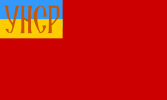
.svg.png)

.svg.png)
- in Belarus


.svg.png)
- in Central Europe


- in Lithuania


- in Latvia

.svg.png)
- in Estonia

- in Finland
- in Southern Russia






- in Caucasus and Caspiy

.svg.png)


.svg.png)
.svg.png)
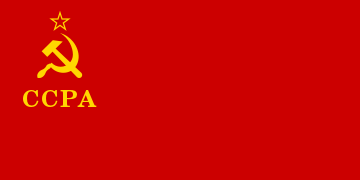
- in Turkestan
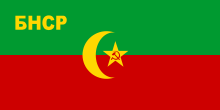

- in Russian Far East
- Russia Eastern Outskirts (1920)

.svg.png)
Non-realized republics of Soviet Russia
- in Moldova

- in Poland

Imperial Japan
During Japan's imperial period, and particularly during the Pacific War (parts of which are considered the Pacific theatre of World War II), the Imperial Japanese regime established a number of dependent states.
Nominally sovereign states
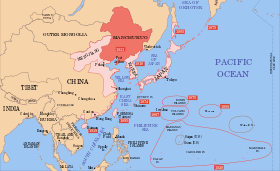
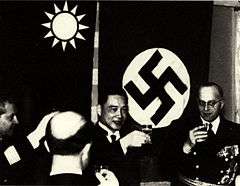
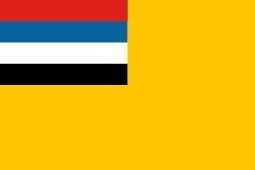

.svg.png)
- Dadao government (Shanghai 1937–1940) – A short-lived regime based in Shanghai.
.svg.png)
.svg.png)
.svg.png)
.svg.png)
.svg.png)
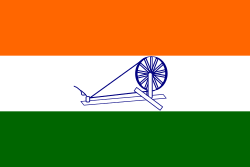
.svg.png)
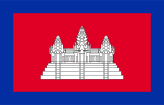
.svg.png)
Unrealized drafts for dependent states
Japan had made drafts for other dependent states.
The Provisional Priamurye Government never got beyond the planning stages. In addition to the Japanese, the Germans supported the formation of this state.
In 1945, as the Second World War drew to a close, Japan planned to grant independence to the former Dutch East Indies (now Indonesia). These plans ended when the Japanese surrendered on August 15, 1945.
Nazi Germany and Fascist Italy
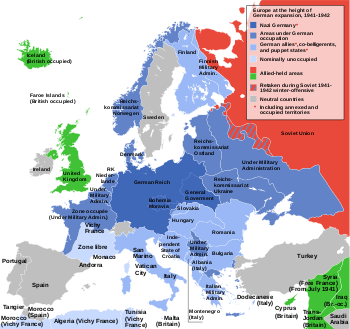
Several European governments under the domination of Germany and Italy during World War II have been described as "puppet régimes". The formal means of control in occupied Europe varied greatly. These states fall into several categories.
Existing states in alliance with Germany and Italy
.svg.png)
Existing states under German or Italian rule
.svg.png)
.svg.png)

New states formed to reflect national aspirations
.svg.png)
.svg.png)
States under control of Germany and Italy
.svg.png)
.svg.png)
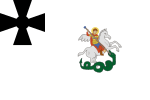
.svg.png)

.svg.png)
Italian Social Republic

Allies during and post-World War II
Soviet Union
.svg.png)



.svg.png)
.svg.png)
.svg.png)
.svg.png)
.svg.png)

.svg.png)

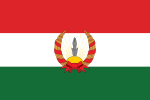
.svg.png)
As Soviet forces prevailed over the German Army on the Eastern Front during the Second World War, the Soviet Union supported the creation of communist governments in all of Eastern Europe. Specifically, the People's Republics in Poland, Romania, Czechoslovakia, Bulgaria, Hungary, and Albania were dominated by the Soviet Union. While all of these People's Republics did not "officially" take power until after World War II ended, they all have roots in pro-Communist war-time governments.
United Kingdom
The Axis demand for oil and the concern of the Allies that Germany would look to the oil-rich Middle East for a solution, caused the invasion of Iraq by the United Kingdom and the invasion of Iran by the United Kingdom and the Soviet Union. Pro-Axis governments in both Iraq and Iran were removed and replaced with Allied-dominated governments.
.svg.png)
.svg.png)
Decolonization and Cold War
In some cases, the process of decolonization has been managed by the decolonizing power to create a neo-colony, that is a nominally independent state whose economy and politics permits continued foreign domination. Neo-colonies are not normally considered puppet states.
Dutch East Indies
The Netherlands formed several puppet states in the former Dutch East Indies as part of the effort to quell the Indonesian National Revolutionː

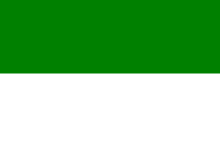




- Bandjar
- Bangka
- Biliton
- Central Java
- East Kalimantan

- Southeast Borneo Federation
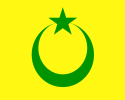
Congo Crisis
Following Belgian Congo's independence as the Republic of the Congo (Léopoldville) in 1960, Belgian interests supported the short-lived breakaway state of Katanga (1960–1963).
East Asia during the Cold War
During the 1950–1953 Korean War, South Korea and the United States alleged that North Korea was a Soviet puppet state. At the same time, South Korea and Japan was accused of being an American puppet state by North Korea and its allies. Additionally, in 1951 Dean Rusk, the Assistant Secretary of State for Far Eastern Affairs, branded the People's Republic of China a "Slavic Manchukuo", implying that it was a puppet state of the Soviet Union just as Manchukuo had been a puppet state of the Empire of Japan. This position was commonly taken by American propaganda of the 1950s, despite the fact that the Chinese communist movement had developed largely independently of the Soviet Union.
Following the victory of the Viet Minh in the First Indochina War, the 1954 Geneva Accords stipulated that Vietnam would be divided for two years only, until national elections could be held. However, the Americans along with Ngo Dinh Diem feared that Ho Chi Minh and the Communists would win the election. The State of Vietnam and the United States didn't sign the Geneva Accords, citing that it was impossible to hold free and fair nationwide democratic elections in the communist North, and this was later expressed by UN observers monitoring the partition of Vietnam. As a result, South Vietnam and the U.S. were not bound by its terms. In 1955 the Vietnamese president Ngo Dinh Diem, supported by the United States, declared the independence of the Republic of Vietnam in the southern half of Vietnam. Over time, Diem grew increasingly uncomfortable with the role of the U.S. in his country, complaining that they were increasing the conflict with North Vietnam. Diem's complaints became more vocal as American soldiers, called "advisors", continued to pour into the country, and some began calling Diem an uncooperative client and a puppet pulling his own strings.[18] After he became seen more as a liability than an asset to America, Diem was assassinated in 1963 with the complicity of the CIA and John F. Kennedy.[19]
During the Vietnam War, South Vietnam was allied with the United States and other anti-communist states in Asia and the West, whereas North Vietnam was allied with the Soviet Union, and with other socialist and communist nations.
South Africa's Bantustans
During the 1970s and 1980s, four ethnic bantustans, called "homelands" by the government of the time (some of which were extremely fragmented) were carved out of South Africa and given nominal sovereignty. Mostly Xhosa people resided in the Ciskei and Transkei, Tswana people in Bophuthatswana and Venda people in the Venda Republic.
The principal purpose of these states was to remove the Xhosa, Tswana and Venda peoples from South African citizenship (and so to provide grounds for denying them democratic rights). All four bantustans were reincorporated into a democratic South Africa on 27 April 1994.
Post-Cold War
Republic of Kuwait
The Republic of Kuwait was a short-lived pro-Iraqi state in the Persian Gulf that only existed three weeks before it was annexed by Iraq in 1990.
Republic of Serbian Krajina
The Republic of Serbian Krajina was a self proclaimed and by Serbian forces ethnic cleansed territory during the Croatian War (1991–95). It was not recognized internationally. That regime was completely dependent to the Serbian regime of Slobodan Milosevic.[20]
Current
Algeria
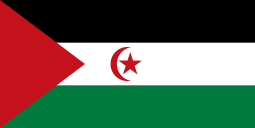
Armenia
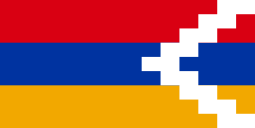
Russia
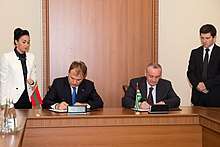
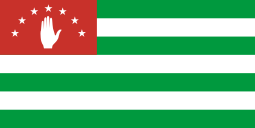
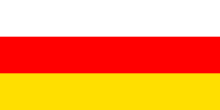

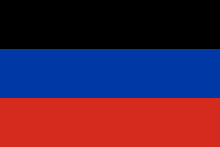

Ukraine

Turkey
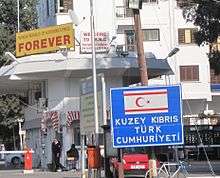
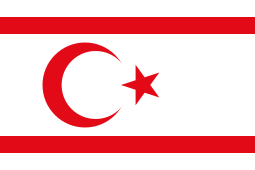
Saudi Arabia
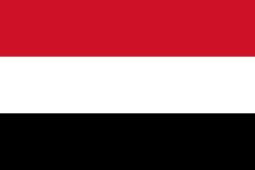
United Arab Emirates

Proposed
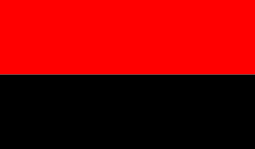
See also
References
- Compare: Marek, Krystyna (1954). Identity and Continuity of States in Public International Law. Library Droz. p. 178. ISBN 9782600040440.
[...] an allegedly independent, but 'actually' dependent, i.e. puppet State [...].
- McNeely, Connie L. (1995). Constructing the Nation-state: International Organization and Prescriptive Action. Greenwood Publishing Group. p. 61. ISBN 978-0-313-29398-6. Retrieved 13 September 2017.
The term 'puppet state' is used to describe nominal sovereigns under effective foreign control...
- Raič, David (2002). Statehood and the Law of Self-Determination. Kluwer Law International. p. 81. ISBN 90-411-1890-X. Retrieved 13 September 2017.
In most cases, puppet States are created by the occupant during occupation of a State, for the purpose of circumventing the former's international responsibility regarding the violation of the rights of the occupied State.
-
Lemkin, Raphaël (2008) [1944]. Axis Rule in Occupied Europe: Laws of Occupation, Analysis of Government, Proposals for Redress. The Lawbook Exchange, Ltd. p. 11. ISBN 978-1-58477-901-8. Retrieved 30 June 2019.
The creation of puppet states or of puppet governments does not give them any special status under international law in the occupied territory. Therefore the puppet governments and puppet states have no greater rights in the occupied territory than the occupant himself. Their actions should be considered as actions of the occupant and hence subject to the limitations of the Hague Regulations.
- Shapiro, Stephen (2003). Ultra Hush-hush. Annick Press. p. 38. ISBN 1-55037-778-7.
Puppet state: a country whose government is being controlled by the government of another country, much as a puppeteer controls the strings on a marionette
- Harper, Douglas. "puppet (n.)". Online Etymology Dictionary. Retrieved 1 June 2014.
- Şirin, İbrahim (February 2014). "İki Hükümet Bir Teşkilat: Garbî Trakya Hükümet-i Muvakkatesi'nden Cenub-î Garbî Kafkas Hükümeti Muvakkate- î Milliyesi'ne" [Two Governments One Organisation: From the Provisional Government of Western Thrace to the Provisional Government of South-Western Caucasia] (PDF). History Studies (in Turkish). historystudies.net. 6 (2): 125–142. doi:10.9737/historys1130. ISSN 1309-4688: See translated abstract on page 125
- Jowett, Phillip S., Rays of The Rising Sun, Armed Forces of Japan’s Asian Allies 1931–45, Volume I: China & Manchuria, 2004. Helion & Co. Ltd., 26 Willow Rd., Solihull, West Midlands, England, pg.7–36.
- Jowett, Phillip S., Rays of The Rising Sun, Armed Forces of Japan’s Asian Allies 1931–45, Volume I: China & Manchuria, 2004. Helion & Co. Ltd., 26 Willow Rd., Solihull, West Midlands, England, pg.49–57,88–89.
- Jowett, Phillip S., Rays of The Rising Sun, Armed Forces of Japan’s Asian Allies 1931–45, Volume I: China & Manchuria, 2004. Helion & Co. Ltd., 26 Willow Rd., Solihull, West Midlands, England, pg.44–47,85–87.
- Jowett, Phillip S., Rays of The Rising Sun, Armed Forces of Japan’s Asian Allies 1931–45, Volume I: China & Manchuria, 2004. Helion & Co. Ltd., 26 Willow Rd., Solihull, West Midlands, England, pg.63–89.
- ...managed to see the puppet Greek Prime Minister Ioannis Rallis through @ Sephardi Jewry: A History of the Judeo-Spanish Community, 14th–20th Centuries – Page 168
- Serbia also had a Nazi puppet regime headed by Milan Nedic @ The Balkanization of the West: The Confluence of Postmodernism and Postcommunism – Page 198
- Arfa, Hassan. "Reza Shah Pahlavi: Shah of Iran: Policies as Shah". Encyclopædia Britannica online. Britannica.com. Retrieved 25 November 2017.
- The Baltic States: Estonia, Latvia and Lithuania (Postcommunist States and Nations) David J. Smith from Front Matter ISBN 0-415-28580-1
- Mälksoo, Lauri (2003). Illegal Annexation and State Continuity: The Case of the Incorporation of the Baltic States by the USSR. Leiden – Boston: Brill. ISBN 90-411-2177-3.
- Estonia: Identity and Independence: Translated into English (On the Boundary of Two Worlds: Identity, Freedom, and Moral Imagination in the Baltics) Jean-Jacques Subrenat, David Cousins, Alexander Harding, Richard C. Waterhouse on Page 246. ISBN 90-420-0890-3
- Kinzer, Stephen (2006). Overthrow: America's Century of Regime Change from Hawaii to Iraq. New York City: Times Books. pp. 153–156. ISBN 0-8050-7861-4.
- Heller, Henry (2006). The Cold War and the New Imperialism. New York City: Monthly Review Press. p. 168. ISBN 1-58367-139-0.
- "Freedom on Fire". Retrieved 3 January 2020.
- "Le Maroc ne " reconnaîtra jamais " la République sahraouie, selon un ministre". Le Monde.fr (in French). 6 February 2017. ISSN 1950-6244. Retrieved 4 June 2017.
- "Sahara occidental: face à la présence du Polisario, le Maroc quitte le sommet de Malabo". RTBF Info (in French). 23 November 2016. Retrieved 4 June 2017.
- "Chiragov and Others v. Armenia". ECHR. Retrieved 21 December 2016.
- Coffey, Luke (1 June 2012). "Georgia and Russia: The occupation too many have forgotten". thecommentator.com. Retrieved 13 September 2017.
- Francis, Céline (2011). Conflict Resolution and Status: The Case of Georgia and Abkhazia (1989-2008). VUBPRESS Brussels University Press. pp. 92–97. ISBN 978-90-5487-899-5. Retrieved 13 September 2017.
- Nikolaus von Twickel (26 August 2011). "No Clear Frontrunner as Abkhazia Goes to Poll". The Moscow Times.
- "BBC News – Regions and territories: Abkhazia". BBC News. London: BBC. 22 November 2011. Retrieved 19 January 2012.
- "Russian Troops in Abkhazia to Get Air-Conditioned APCs". RIA Novosti. 19 April 2013.
- "Abkhazian border to be guarded by Russian troops". The Voice of Russia. 15 September 2009.
- Times Online (11-Sep-2008). Retrieved on 21-Dec-2008. (subscription required)
- Robertson, Dylan C. (5 March 2014). "Is Transnistria the ghost of Crimea's future?". The Christian Science Monitor. Retrieved 25 October 2015.
- Jones, Sam (27 January 2015). "Ukraine fighting points to Russia designs for puppet state". Financial Times. Retrieved 25 October 2015.
- "Russia marches on uninhibited in eastern Ukraine". The Washington Post. 18 February 2015. Retrieved 25 October 2015.
- Robertson, Dylan C. (5 March 2014). "Is Transnistria the ghost of Crimea's future?". The Christian Science Monitor. Retrieved 25 October 2015.
- Milano, Enrico (2006). Unlawful Territorial Situations in International Law: Reconciling Effectiveness, Legality And Legitimacy. p. 146. ISBN 9004149392.
- Terry.D., Gill (2016). Yearbook of International Humanitarian Law 2015. p. 58. ISBN 9789462651418.
- James, A. Sovereign statehood: The basis of international society." p. 142 . Taylor and Francis, 1986, 288 pages. ISBN 0-04-320191-1.
- Kurtulus, E. State sovereignty: concept, phenomenon and ramifications. p. 136 . Macmillan, 2005, 232 pages. ISBN 1-4039-6988-4.
- Kaczorowska, A. Public International Law. p. 190 . Taylor and Francis, 2010, 944 pages. ISBN 0-415-56685-1.
- Bartmann, Barry (2004). Bahcheli, Tozun; Bartmann, Barry; Srebrnik, Henry (eds.). De Facto States: The Quest for Sovereignty. Routledge. p. 24. ISBN 9781135771218.
- Dodd, Clement Henry (1993). The political, social and economic development of Northern Cyprus. Eothen Press. p. 377. ISBN 9780906719183.
In short, the electorate of Northern Cyprus votes freely for its political leaders and gives them substantial support. Nor is Northern Cyprus a Turkish puppet state. Mr Denktas and the Turkish-Cypriot case have a powerful following in Turkey...
- "ANALYSIS: Saudi Arabia plays puppet master as Yemen slowly breaks apart". Middle East Eye. 2 February 2018.
- Browning, Noah. "UAE extends military reach in Yemen and Somalia". reuters.com.
- "Yemen on the brink: how the UAE is profiting from the chaos of civil war". The Guardian. 21 December 2018. Retrieved 31 December 2018.
Further reading
- James Crawford. The creation of states in international law (1979)